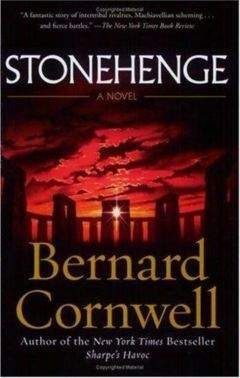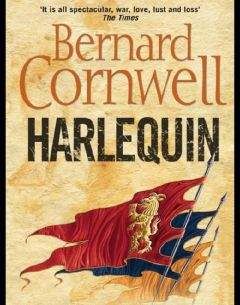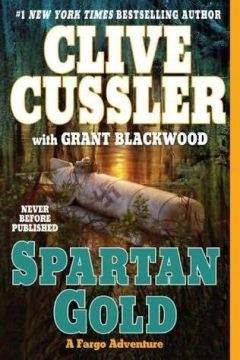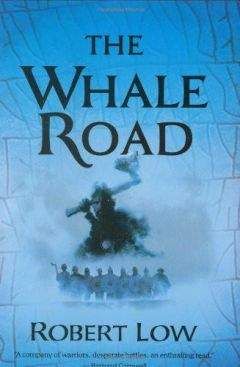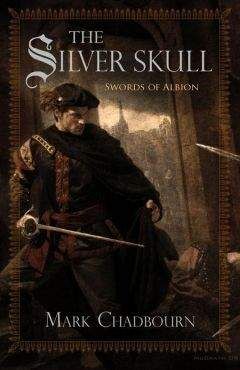Ознакомительная версия.
Midsummer arrived. The fires were lit and Ratharryn's men wore the bullskins and chased the women about Slaol's temple. Saban did not run with the bull-men, though he could have, but instead he sat with Derrewyn and, as the fires died, they jumped the flames hand in hand. Gilan dispensed the liquor brewed for the night's celebrations; some folk screamed as they saw visions, while others became belligerent or ill, but eventually they slept, except Saban, who stayed awake, for Jegar had been drunkenly searching for him with a spear in his left hand and revenge on his liquor-fuddled mind. Saban stayed close to the temple that night, sitting guard over the sleeping Derrewyn, though he dozed towards morning when he was woken by footfalls and quickly lifted his spear. A man was coming up the path from the settlement and Saban crouched, ready to lunge, then saw the reflection of dying firelight glint from the man's bald head and realized it was Gilan, not Jegar.
'Who's that?' the high priest asked.
'Saban.'
'You can help me,' Gilan said cheerfully. 'I need a helper. I was going to ask Neel, but he's sleeping like a dog.'
Saban woke Derrewyn and the two of them walked with Gilan to the Old Temple. It was the year's shortest night and Gilan kept glancing at the north-eastern horizon for fear that the sun would rise before he reached the Old Temple. 'I need to mark the rising sun,' he explained as they passed through the grave mounds. He bowed to the ancestors, then hurried on to where the eight stones waited on their sledges just outside the Old Temple's ditch. The north-eastern sky was perceptibly lightening, but the sun had yet to blaze across the far wooded hills. 'We need some markers,' Gilan said, and Saban went down into the ditch and found a half-dozen large lumps of chalk, then he stood in the entrance causeway while Gilan went to the stake that marked the temple's centre. Derrewyn, forbidden to enter the temple because she was a woman, waited between the ditches and banks of the newly cut sacred path.
Saban turned to face the north-east. The horizon was shadowy and the hills in front of it were grey and sifted with the smoke from the dying midsummer fires that rose from Ratharryn's valley. The cattle on the nearer slopes were white ghostly shapes.
'Soon,' Gilan said, 'soon,' and he prayed that the scatter of clouds on the horizon would not hide the sun's rising.
The clouds turned pink and the pink deepened and spread, becoming red, and Saban, watching where the blazing sky touched the jet black earth, saw a gap of sky above the trees and suddenly there was a fierce brightness in those distant woods as the sun's upper edge slashed through the leaves.
'To your left!' Gilan called. 'Your left. One pace. No, back! There! There!'
Saban placed a chalk marker at his feet, then stood to watch the sun chase away the stars. At first Slaol appeared like a flattened ball that leaked an ooze of fire along the wooded ridge, and then the red turned to white, too fierce for the eyes, and the first light of the new year shone straight along the new sacred path that led to the Old Temple's entrance. Saban shaded his eyes and watched the night shadows shrink in the valleys. 'To your right!' Gilan called. 'To your right!' He made Saban place another marker at the spot where the sun was at last wholly visible above the horizon, and then he waited until the sun just showed above Saban's head and made him place a third marker. The sound of the tribe singing its welcome to the sun came gently across the grass.
Gilan examined the markers Saban had laid and grunted happily when he saw that some of the old posts which had decayed in their sockets had evidently marked the same alignments. 'We did a good job,' he said approvingly.
'What do we do next?' Saban asked.
Gilan gestured either side of the temple's entrance. 'We'll plant two of the larger stones here as a gate,' he said, then pointed to where Derrewyn stood in the sacred path, 'and put the other two there to frame the sun's midsummer rising.'
'And the four smaller stones?' Saban asked.
'They'll mark Lahanna's wanderings,' the priest answered, and pointed across the river valley. 'We'll show where she appears farthest to the south,' he said, then turned and gestured in the opposite direction, 'and where she vanishes in the north.' Gilan's face seemed to glow with happiness in the early light. 'It will be a simple temple,' he said softly, 'but beautiful. Very beautiful. One line for Slaol and two for Lahanna, marking a place where they can meet beneath the sky.'
'But they're estranged,' Saban said.
Gilan laughed. He was a kindly man, portly and bald, who had never shared Hirac's fear of offending the gods. 'We have to balance Slaol and Lahanna,' he explained. 'They already have a temple apiece in Ratharryn, so how will Lahanna feel if we give Slaol a second shrine all of his own?' He left that question unanswered. 'And we were wrong, I think, to keep Slaol and Lahanna apart. At Cathallo they use one shrine for all the gods, so why shouldn't we worship Slaol and Lahanna in one place?'
'But it's still a temple to Slaol?' Saban asked anxiously, remembering how the sun god had helped him at the beginning of his ordeal.
'It's still a temple to Slaol,' Gilan agreed, 'but now it will acknowledge Lahanna too, just like the shrine at Cathallo.' He smiled. 'And at its dedication we shall marry you to Derrewyn as a foretaste of Slaol and Lahanna's reunion.'
The sun was high enough to give its warmth as the three walked back to the settlement. Gilan talked of his hopes, Saban held his lover's hand, the smoke of the midsummer fires faded and all was well in Ratharryn.
—«»—«»—«»—
Galeth was the temple's builder, and Saban became his helper. They placed the four smaller boulders first. Gilan had calculated the positions for the stones, and they had to be placed by calculation rather than by observation for the four stones formed two pairs and each pair pointed towards Lahanna. In her wanderings about the sky, she stayed within the same broad belt year after year, but once in a man's lifetime she went far to the north and once in a lifetime far to the south. The poles in her existing temple inside the settlement marked the limits of those northern and southern wanderings and if a man drew a line between the points on the horizon where the moon rose and set at her extremes it would cross the line of the sun's midsummer rising at a right angle. That made Gilan's task simple. 'It isn't so everywhere,' he explained to Saban. 'It's only here in Ratharryn that the lines cross square. Not at Drewenna, not at Cathallo, nowhere else! Only here!' Gilan was in awe of that fact. 'It means we are special to the gods,' he said softly. 'It means, I think, that this is the very centre of all the world!'
'Truly?' Saban asked, impressed.
'Truly,' Gilan said. 'Cathallo, of course, say the same about their Sacred Mound, but I fear they're mistaken. This is the world's centre,' he said, gesturing at the Old Temple, 'the very place where man was first made.' He shuddered at that thought, moved by the joy of it.
The high priest then laid a nettle string along the line of midsummer's rising, taking it from the chalk marker which showed where the sun rose, through the very centre of the temple and on to the south-eastern bank. Galeth had jointed two pieces of thin timber to make a square angle and, by laying the timber against the string, and then running another string along the crosswise timber, they could mark a line that crossed the sun's line at a right angle. That new line pointed to the extremes of the moon's wandering, but Gilan wanted two parallel lines, one to point to the northernmost limit and the other to the southernmost, so he drew his second line and told Galeth that the four small stones must be placed inside the bank at the outer ends of both scratched lines. One of each pair was to be a pillar and the other a slab, and by standing beside the pillar and looking across the opposite slab a priest could watch where Lahanna rose or set and judge how close she approached her most distant wanderings.
Galeth had thirty men working and at first they simply dug the holes for the stones. They scraped away the turf, then prised at the hard chalk with the picks and broke it into clumps that could be scooped out with shovels. They dug the holes deep, and Galeth made them slope one side of the hole to make a ramp so that the stones could be slid down into their sockets. It was, he told Saban, no different from raising one of the big temple poles. When all four holes were dug, more men were fetched up from the settlement and the first stone, the smallest pillar, was dragged on its sledge through the entrance of the sun. Saban had thought there might be some ceremony as the stone was brought to its new sacred home, but there was no ritual other than a silent prayer that Gilan offered with his hands reaching to the sky. The sledge runners left scars of crushed grass. Galeth lined the stone up with the hole and kept the men hauling until the tip of the sledge just overhung the ramp that Saban had lined with three smoothed timbers that had been greased with pig fat to serve as a slide.
It took twelve men using long oak levers to shift the stone off the sledge. Saban thought the levers must break, but instead the stone moved bit by bit, heave by heave, and each heave lifted and carried the boulder another finger's breadth forward. The men sang as they worked, and the sweat poured off them, but at last the weight of the stone tipped it forwards off the sledge and down onto the ramp. Men scattered, fearing the stone would fall back on them, but instead, just as Galeth had planned, it slid ponderously down the greased timbers to lodge at the ramp's bottom. Galeth wiped his face and let out a great breath of relief.
When he erected the great temple poles Galeth would haul them upright by pulling their tops into the sky by means of a great tripod over which the ropes were led, but he reckoned this stone pillar was small enough to be pushed upright without any such help. He chose the twelve strongest men and they took their places beside the uppermost part of the stone that now tilted up from the ramp's edge. The men got their shoulders under the stone and heaved. 'Push!' Galeth shouted. 'Push!' and they did push, but the stone still stuck halfway. 'Heave on it!' Galeth urged them and added his own huge strength to theirs, but still the stone would not move. Saban peered down the hole and saw that the stone was catching on the upright face of rubbly chalk. Galeth saw it too, swore, and seized a stone axe with which he hacked at the chalk face to make room for the stone.
The dozen men had no trouble holding the stone's weight and, once the obstruction was cleared, they pushed it upright. The stone now stood a little less than the height of a man, with almost as much again buried in the socket, and all that was needed was to fill the ramp and press earth and chalk into the hole about the boulder. Galeth had collected some great river stones and they were packed about the pillar's base, then the chalk rubble was scooped in, and with it the antlers that had broken while the hole was being dug, and all was stamped down and stamped down again until at last the hole and the ramp were filled and the first of the temple's stones was standing. The tired men cheered.
It took until harvest to raise the other three moon stones, but at last they were done and the four grey boulders stood in a rectangle. Galeth had rigged a short tripod of oak beams to raise the slabs, for they were heavier than the pillars, but what made raising the stones even easier was Saban's notion of lining the upright face of the hole with greased timbers so that the stone's corner, grinding down into the earth, did not lodge against the chalk. The fourth stone they raised, even though it was one of the heavier slabs, took only half as long to raise as the first pillar.
'The gods made you clever,' Galeth complimented him.
'You too.'
'No.' Galeth shook his head. 'The gods made me strong.'
The moon stones were finished. Now, if a man could draw a line through the pairs, and extend that line on either side to the very ends of the earth where the fogs lingered across grey seas in perpetuity, he could see where the moon rose and fell at the limits of her wanderings and Lahanna, endlessly travelling among the stars, could look down and see that the people of Ratharryn had marked her journeying. She would know that they watched her, know that they loved her, and she would hear their prayers.
The four larger stones stayed outside the temple while Ratharryn's folk cut the year's wheat and barley. It was a fair harvest and the women sang as they stood about the threshing floor that had been flattened and hardened by a day-long harvest dance. Saban and Derrewyn led the dance, and the women swayed and smiled because Derrewyn was young and happy, and Saban, they knew, was a good young man, decent and strong, and their imminent marriage was taken as a good augury. Only Jegar, who could still not hold a bow in his right hand and could only use a spear with his clumsy left hand, resented them, but there was little he could do. And Jegar's jealousy grew worse when a band of Outfolk tried to raid the harvest from Cheol, which was an outlying settlement of Ratharryn, and Hengall led a war band against them, defeated them, and brought back six heads. One of those heads was taken by Saban, though in truth Galeth had held the shrieking Outfolk warrior still so that Saban could kill him, but still Saban was allowed to wear a blue kill mark on his chest.
After that skirmish, and after the harvest was stored, the men went back to finish the remaining work, and Saban, going with them to begin the new work, stopped to stare at the Old Temple with its four new stones. It looked different suddenly. It was a chill day, with autumn's first bite in the air, but the sun shone between a gap in the clouds to light the new white banks of the sacred path and the clean chalk circle of the temple's ditch and bank. And in that circle, their shadows stark in the morning light, the four stones stood.
Galeth paused beside Saban. 'It looks good,' he said, sounding surprised, and it did. It looked splendid. It looked clean, purposeful, even calm. The temple was not massive and grand like Cathallo's shrine, but instead was lifted up on the hill's green breast so that the four stones seemed to float in the sky. Cathallo's temple, with its great squat boulders dwarfed by the massive embankment, was more like a thing of the earth while this shrine was airy and delicate.
'It's a sky temple,' Saban said.
Galeth liked that. 'A sky temple,' he said, 'why not? It's a good name.' He clapped Saban on a shoulder. 'It's the right name, the Sky Temple!' He hefted a timber and walked on, peering intently at the southern horizon. He was looking for smoke that might betray where a hunting band had its camp, but he saw nothing. There was a rumour that a large band of Outfolk was in the forest, though Hengall, taking another war band west and south, had found no sign of them. 'Let's hope they've moved on,' Galeth said, touching his groin. 'They can find someone else's land, not ours.'
The Outfolk had lived in the land for generations now, indeed no one living could remember when they had first come from the land across the eastern sea, but all knew they spoke a different language and had different customs. Some of them, like the men of Sarmennyn who had lost their gold lozenges, had found great tracts of empty land to make their home, but others still wandered the forest in search of places to live and it was those homeless bands that caused trouble to Ratharryn, for the bigger Outfolk settlements were all far away.
Ознакомительная версия.
